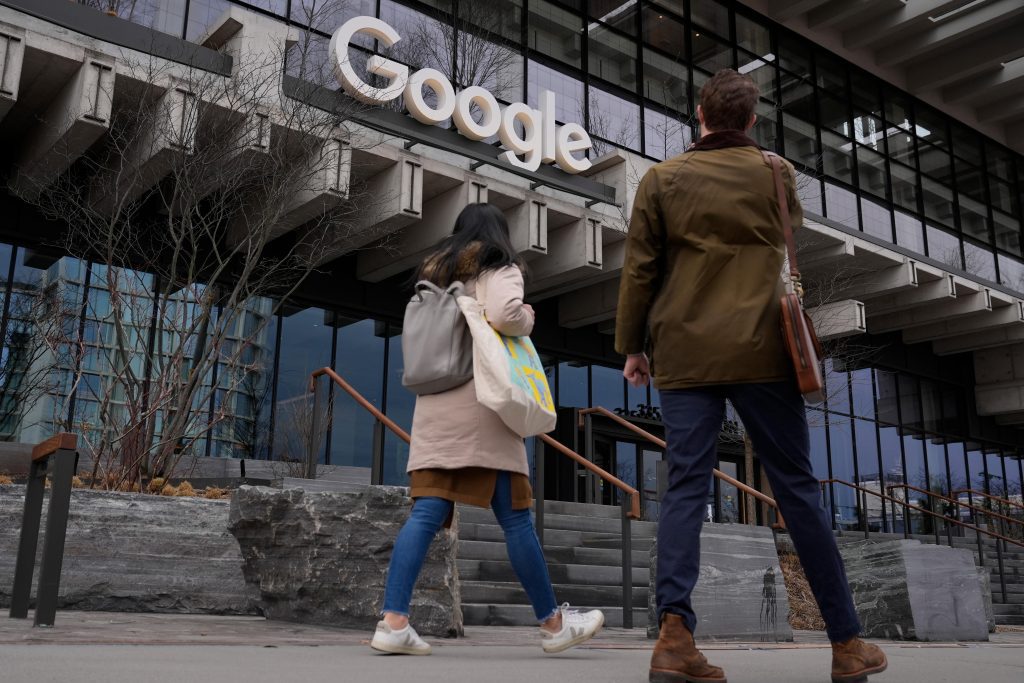By MATTHEW BARAKAT (AP Business Writer)
Google's dominance as an internet search engine is an illegal monopoly supported by the tech giant spending over $20 billion annually to block out competition, according to Justice Department lawyers at the close of a high-stakes antitrust lawsuit.
Google, on the other hand, argues that its popularity comes from its quality and its ability to provide the results customers want.
The U.S. government, a group of states, and Google all presented their final arguments on Friday in the 10-week lawsuit to U.S. District Judge Amit Mehta, who now has to determine if Google violated the law by maintaining a monopoly as a search engine.
Much of the case, the largest antitrust trial in more than two decades, has focused on how much Google's strength comes from contracts with companies like Apple to have Google as the default search engine on phones and computers.
During the trial, evidence showed that Google spends over $20 billion a year on such contracts. Justice Department lawyers say this sum shows how important it is for Google to make itself the default search engine and prevent competitors from gaining traction.
Google argues that customers could easily use other search engines if they wanted, but that consumers prefer Google. Companies like Apple testified that they partner with Google because they believe its search engine is superior.
Google also contends that the government's definition of the search engine market is too narrow. While it does have a dominant position over other general search engines like Bing and Yahoo, Google says it faces much more intense competition when consumers make targeted searches. For example, the tech giant says shoppers may be more likely to search for products on Amazon than Google, vacation planners may use AirBnB, and hungry diners may search for a restaurant on Yelp.
Google also stated that social media companies like Facebook and TikTok present strong competition.
During Friday's arguments, Mehta questioned whether some of those other companies are truly in the same market. He said social media companies can generate ad revenue by trying to show ads that match a consumer's interest. But he said Google has the ability to place ads directly in response to queries submitted by consumers.
“It’s only Google where we can see that directly declared intent,” Mehta said.
Google’s lawyer, John Schmidtlein, responded that social media companies “have lots and lots of information about your interests that I would say is just as powerful.”
The company also argued that its market strength is fragile as the internet continually changes. Earlier in the trial, it noted that many experts once thought Yahoo would always dominate in search. Today, it said younger tech consumers sometimes view Google as “Grandpa Google.”
Even though Google's search services are free for users, the company makes money from selling ads that appear with search results.
During Friday's arguments, Justice Department lawyer David Dahlquist stated that Google grew its ad revenue by increasing the number of searches until around 2015, when search growth slowed and they needed to earn more money from each search.
The government claims that Google's monopoly on search engine allows it to charge higher prices to advertisers, which then affect consumers.
Dahlquist argued that competition should limit price increases and the market should determine the price hikes.
Dahlquist mentioned that internal Google documents indicate the company, without real competition, started adjusting its ad algorithms to sometimes show worse search ad results to users if it would make more money.
Google's lawyer, Schmidtlein, stated that the evidence shows that its search ads have become more effective and helpful to users over time, with the click rate increasing from 10% to 30%.
Mehta has not yet announced when he will make a decision, but it is expected to take several months.
If he finds Google guilty, he would then schedule a 'remedies' phase of the trial to decide what to do to enhance competition in the search-engine market. The government has not specified the remedy it would request.









